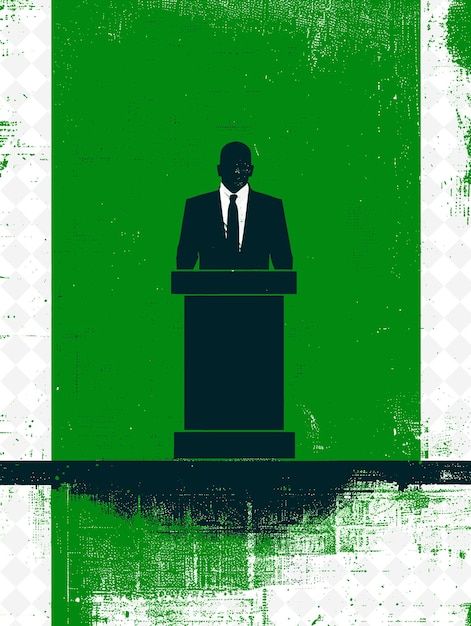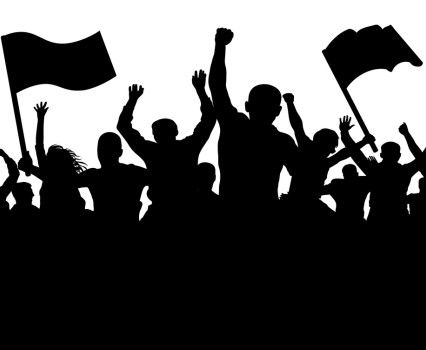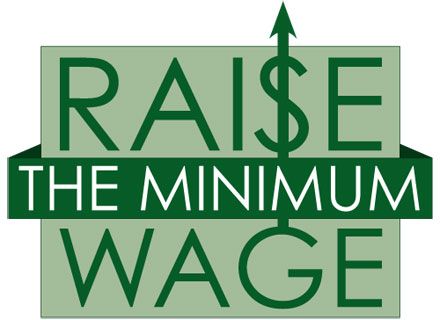POLITICS:SHOULD POLITICIANS EARN THE MINIMUM WAGE?

A BOLD PROPOSITION
Imagine this: Your country’s president lives in a modest flat, shops where you shop, and earns the same amount as a teacher, cleaner, or nurse. They can’t afford a convoy. Their children attend public school. They budget for groceries just like you.
Unrealistic? Perhaps. But it begs the question: Should politicians earn the minimum wage?
Every month, while thousands of civil servants, teachers, nurses, and cleaners stretch their meagre wages to feed entire families, politicians receive salaries padded with allowances that most citizens can’t even imagine. In countries like Nigeria—where the minimum wage stands at 70,000 Naira a month( roughly 50 dollars)—some lawmakers earn millions monthly
In a world where political elites are often out of touch with the struggles of the average citizen, this provocative idea has gained traction. Supporters believer it could restore trust, accountability, and empathy in the public service. Critics argue it’s a populist gimmick that would deter the qualified leaders and breed inefficiency.
THE PAY GAP BETWEEN POLITICIANS AND THE PEOPLE

image credit: pinterest
In many countries, the average worker lives paycheque to paycheque, struggling with rising inflation, job insecurity, and minimal state support. Mean while, politicians—often elected to serve—receive generous salaries, housing allowances, pensions, travel perks, and in some cases, immunity from prosecution.
In Nigeria, while millions live below the poverty line, lawmakers are among the highest paid in the world, earning in a month what some constituents won’t see in a decade. The disparity is glaring.
The question then arises: How can a leader legislate for people they can no longer relate to?
WHAT MINIMUM WAGE MEANS IN PRACTICE

IMAGE CREDIT: PINTEREST
To be clear, the minimum wage is not just a number. It’s A measure of what society considers the bare minimum for survival. A symbol of how little a worker’s time is deemed worth. Often insufficient to live with dignity.
As of 2025, many African countries still pay under 100 dollars per month as minimum wage. In western nations, minimum wages vary but often still fall short of covering rent, food, healthcare, and transport in major cities.
If politicians had to survive on the same page, they might rethink public transportation, improve housing policies, prioritise healthcare access, be forced to experience the reality they legislate from afar.
Imagine a senator trying to pay rent in Lagos on 70,000 Naira. Imagine the governor lining up for fuel, negotiating school fees, or choosing between electricity and dinner. It sounds absurd—but that is the daily reality of the people they claim to serve.
if they survived on the minimum wage, their priorities will shift overnight to focusing on public hospitals—making sure they are well funded—power supply would be stable, education wouldn’t be left to rot, policies wouldn’t be written on assumptions—they’d be born from lived experience.
Because only when you feel the fire, do you fix the stove.
THE IDEA BEHIND MINIMUM WAGE
The minimum wage was created to ensure that every worker can afford a basic standard of living. If it is too low for a politician, then it is too low for the people.
The minimum wage should not be treated as a figure for the “unskilled” or “lesser” jobs. It is a reflection of a country’s economic conscience. So if politicians argue that 70,000 Naira is “enough” for millions, let them prove it by living on it.
For years, For six month. Even one.
WHY THE PROPOSAL IS APPEALING
1. It Would Reconnect Leaders With The People:
If a senator or governor had to spend four hours in traffic, queue for petrol, or attend a crumbling public hospital, would reforms still move slowly?
This idea isn’t about punishment—it’s about empathy by design. It asks: would you govern differently If you had to live like the governed?
2. It Would Deter Career Politicians:
politics, in many nations, has become a get-rich-quick scheme. Many enter not to serve, but to enrich themselves through inflated allowances and unchecked power.
Reducing salaries to the level of minimum wage would filter out opportunists, leaving behind those who truly want to serve—not profit.
3. It Would Spark Urgent Policy Reforms:
No one wants to live on minimum wage. And if the ruling class was subject to the same standards as everyone else, you can bet they’d fight harder for a livable wage, universal healthcare, and better working conditions.
Hunger fuels urgency. Proximity fuels compassion.
COUNTERARGUMENTS: WHY IT MAY BE UNREALISTIC
of course, not everyone agrees.
1. It May Discourage Talent And Professionalism:
Governance is complex. Would highly skilled professionals leave the private sector to earn peanuts in public service?
opponents argue that to attract top talent, politics must be financially competitive, especially in countries where corruption is rampant and personal sacrifice is high.
Do we want our best minds in politics—or just those who can afford to be poor?
2. It Could Invite Corruption, Not Erase It:
Ironically, paying politicians less may drive more corruption, not less. Desperate to maintain a certain lifestyle or status, public officials might find new ways to exploit the system.
underpaid leaders with unchecked power is a recipe for shadow deals.
3. It Is Symbolic, Not Systemic:
Changing salaries alone doesn’t fix systemic rot. What’s needed is : Transparency in procurement, Strengthened anti-corruption agencies, Campaign finance reform, Performance-based evaluations.
Slashing salaries without structural overhaul might just be political theatre.
GLOBAL EXAMPLES: WHAT HAVE OTHERS TRIED?
Some countries have experimented with this idea—or something close.
Uruguay’s Jose Mujica, known as “the world’s poorest president,” donated over 90% of his salary to charity and lived on a modest farm
In Senegal, president Macky Sall cut his salary and dissolved a corrupt senate to redirect funds to flood victims.
In France, former president Francois Hollande reduced ministers’ salaries by 30% as a gesture of solidarity during austerity.
while none of these leaders lived strictly on minimum wage, the message was clear: leadership is service, not status.
THE DEEPER ISSUE: INEQUALITY NOT JUST INCOME
This debate is ultimately not just about numbers—it is about values.
when the political class lives in a different word from the people they serve:
Policy becomes disconnected
Trust erodes
Apathy grows
Democracy weakens.
Should they earn the exact minimum wage? Maybe not. But should they earn 10,20, even 50 times more than a nurse or farmer?
Excess breeds indifference. Modesty breeds perspective.
WHAT COULD A MIDDLE GROUND LOOK LIKE?
If full wage equality seems extreme, what about:
1. Capping political salaries at no more than a 5x the minimum wage?
2. Linking salary raises to performance indicators: Did public health improve? Did child literacy rise?
3. Mandating public servants use public institutions—schools, hospitals, transportation—for their own families.
4.Requiring asset disclosures and regular lifestyle audits.
5. Creating citizens oversight boards to vet all expenditures.
These steps wouldn’t just reduce greed—they would align politicians’ well being with that of the average citizen.
CONCLUSION:
Whether or not politicians should earn the minimum wage is less about the enforcing poverty—and more about challenging privilege.
it's a call to remember that public service is a responsibility, not a reward. That leadership should begin with listening, sacrifice, and shared experience.
so , should politicians earn the minimum wage?
Not necessarily.
But until they feel the weight of everyday life, they may never truly serve those who do.
You may also like...
Bundesliga's New Nigerian Star Shines: Ogundu's Explosive Augsburg Debut!

Nigerian players experienced a weekend of mixed results in the German Bundesliga's 23rd match day. Uchenna Ogundu enjoye...
Capello Unleashes Juventus' Secret Weapon Against Osimhen in UCL Showdown!

Juventus faces an uphill battle against Galatasaray in the UEFA Champions League Round of 16 second leg, needing to over...
Berlinale Shocker: 'Yellow Letters' Takes Golden Bear, 'AnyMart' Director Debuts!

The Berlin Film Festival honored
Shocking Trend: Sudan's 'Lion Cubs' – Child Soldiers Going Viral on TikTok

A joint investigation reveals that child soldiers, dubbed 'lion cubs,' have become viral sensations on TikTok and other ...
Gregory Maqoma's 'Genesis': A Powerful Artistic Call for Healing in South Africa

Gregory Maqoma's new dance-opera, "Genesis: The Beginning and End of Time," has premiered in Cape Town, offering a capti...
Massive Rivian 2026.03 Update Boosts R1 Performance and Utility!

Rivian's latest software update, 2026.03, brings substantial enhancements to its R1S SUV and R1T pickup, broadening perf...
Bitcoin's Dire 29% Drop: VanEck Signals Seller Exhaustion Amid Market Carnage!

Bitcoin has suffered a sharp 29% price drop, but a VanEck report suggests seller exhaustion and a potential market botto...
Crypto Titans Shake-Up: Ripple & Deutsche Bank Partner, XRP Dips, CZ's UAE Bitcoin Mining Role Revealed!

Deutsche Bank is set to adopt Ripple's technology for faster, cheaper cross-border payments, marking a significant insti...
